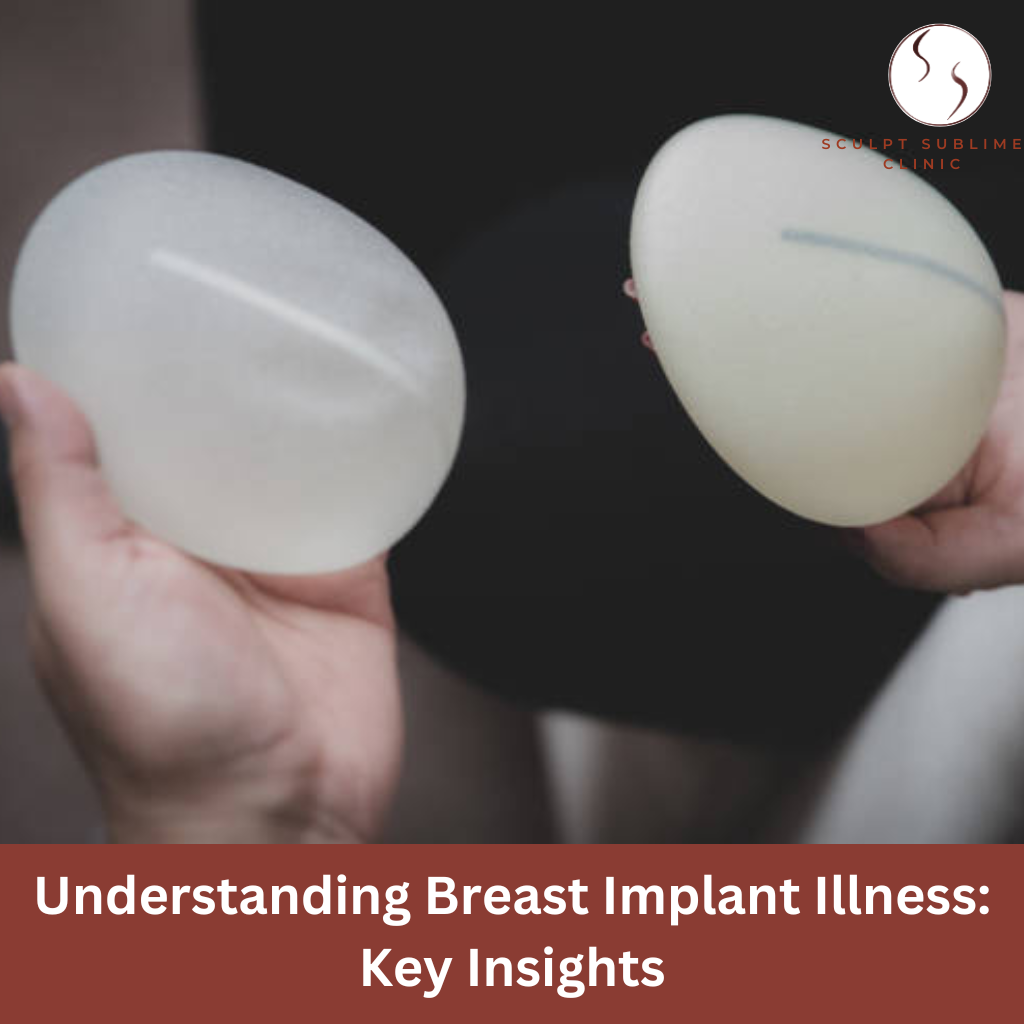June 17, 2025
Table of Contents
For years, breast implants have empowered individuals to achieve the look they desire and feel more confident in their bodies. However, a growing number of people with breast implants have started reporting a cluster of persistent and often confusing health symptoms, a condition now commonly referred to as Breast Implant Illness (BII).
Though BII is not yet officially recognised as a medical diagnosis, organisations like the Indian Association of Aesthetic Plastic Surgeons (IAAPS) acknowledge the patterns in patient reports. So, what is Breast Implant Illness, how can you identify it, and what should you do if you believe your implants may be contributing to your symptoms?
Let’s explore.
What Is Breast Implant Illness?
Breast Implant Illness (BII) is a term used to describe a wide range of systemic symptoms that some people experience after undergoing breast implant surgery. These symptoms may appear weeks, months, or even years after implantation. They can be difficult to pinpoint and often resemble other autoimmune or inflammatory conditions.
While the exact causes of BII are still being researched, the symptoms are real and impactful for those experiencing them.
Recognising the Symptoms of BII
Symptoms of Breast Implant Illness are often vague and varied, making diagnosis difficult. However, many people with BII commonly report the following:
- Chronic fatigue – Feeling exhausted regardless of rest or sleep
- Brain fog – Memory lapses, difficulty concentrating, or feeling mentally “off”
- Joint and muscle pain – Aches, stiffness, or weakness without a clear cause
- Hair loss – Noticeable thinning or shedding
- Headaches – Frequent or persistent headaches
- Skin problems – Rashes, dryness, itchiness
- Dry eyes or mouth – Symptoms similar to autoimmune disorders
- Mood disturbances – Anxiety, depression, or emotional instability
- Sleep problems – Insomnia or disrupted sleep
- Digestive issues – Bloating, constipation, or other gut concerns
- Hormonal imbalances – Irregular periods, weight fluctuations, or thyroid issues
- Increased sensitivity – Allergies, reactions to foods or chemicals
Many of these symptoms can mimic other conditions like lupus, fibromyalgia, or chronic fatigue syndrome, which is why it’s important to take a holistic view of your health history, especially if you have breast implants.
For detailed information about breast implants, explore our blog “What Problems Are Possible with Breast Implants Placed Under the Muscle?”
What To Do If You Suspect Breast Implant Illness
Navigating health concerns that might be linked to implants can feel overwhelming. Here’s a step-by-step roadmap to help guide your next moves:
1. Track Your Symptoms
Keep a daily health journal. Document when symptoms occur, their severity, what you ate, activities you did, sleep patterns, and emotional states. This record will be crucial for identifying patterns and providing detailed information to your doctor.
2. Talk to Your Primary Care Provider
Schedule an appointment and share your concerns openly. Make sure your doctor is aware you have breast implants and that you suspect a possible connection to your symptoms. A supportive and open-minded provider is key.
3. Rule Out Other Medical Conditions
Since BII symptoms overlap with many other illnesses, your doctor may order tests such as:
- Blood panels to check for autoimmune markers or nutrient deficiencies
- Thyroid function tests
- Imaging studies (like ultrasound or MRI) to assess the condition of your implants
This process can help identify or eliminate other possible causes.
4. Consult a Plastic Surgeon (Especially One Familiar with BII)
If other explanations are ruled out and symptoms persist, you may want to meet with a board-certified plastic surgeon who has experience treating BII. Some individuals choose to have their implants removed, a procedure known as explant surgery, which has led to symptom improvement for many.
5. Support Your Body Holistically
While you explore medical avenues, it’s important to care for your overall well-being:
- Eat a nutrient-dense, anti-inflammatory diet
- Get quality sleep
- Engage in low-impact physical activity
- Reduce stress through mindfulness, yoga, or therapy
- Join support groups (online or in-person) for emotional and experiential guidance
What Happens If You Remove Your Implants?
While not every person with implants will develop BII, and not all symptoms will automatically improve after removal, many individuals do report significant relief after explant surgery. If you are considering removal, discuss the risks, benefits, and expected recovery process with a qualified plastic surgeon.
For a deeper understanding, explore our blog “How to Choose the Perfect Breast Surgeon for You in Mumbai?”
Final Thoughts: Awareness and Advocacy Matter
Breast Implant Illness is still under investigation, but the growing number of stories and support groups underscores the importance of listening to your body and advocating for your health. You are not imagining things, and you are not alone. If you suspect your breast implants are making you sick, take the next step by talking to your doctor, gathering information, and connecting with a supportive medical team. Whether your path includes explanation or holistic support, trust yourself and your experience. Your health is worth protecting.
Frequently Asked Questions
What exactly is Breast Implant Illness (BII)?
Breast Implant Illness is a term used to describe a group of symptoms — like fatigue, brain fog, joint pain, and skin issues — that some women experience after breast implant surgery. While not an official medical diagnosis, the symptoms are very real for those affected.
Will removing my breast implants cure BII?
Many women report improvement in symptoms after explant surgery (implant removal), but results vary. Some feel significant relief, while others experience only partial improvement.
Is BII more common with silicone or saline implants?
BII has been reported with both silicone and saline implants. It appears to be related more to the body’s immune response than to the type of implant.
What lifestyle changes can help manage BII symptoms before surgery?
Eating an anti-inflammatory diet, getting good sleep, reducing stress, staying active, and joining support groups may help improve symptoms while you explore medical options.


